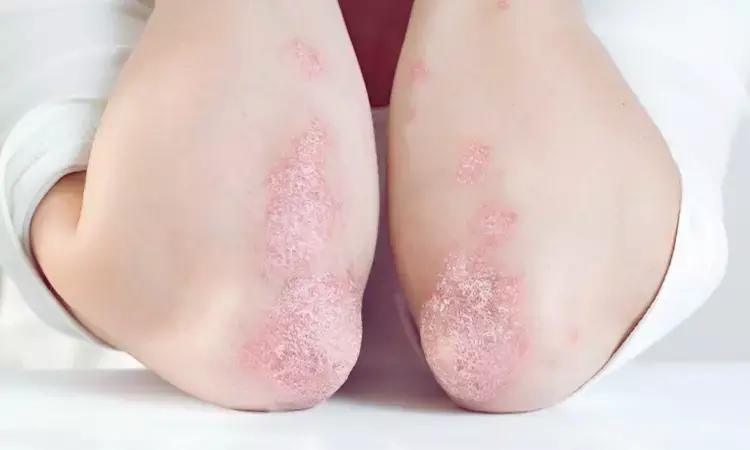- Home
- Medical news & Guidelines
- Anesthesiology
- Cardiology and CTVS
- Critical Care
- Dentistry
- Dermatology
- Diabetes and Endocrinology
- ENT
- Gastroenterology
- Medicine
- Nephrology
- Neurology
- Obstretics-Gynaecology
- Oncology
- Ophthalmology
- Orthopaedics
- Pediatrics-Neonatology
- Psychiatry
- Pulmonology
- Radiology
- Surgery
- Urology
- Laboratory Medicine
- Diet
- Nursing
- Paramedical
- Physiotherapy
- Health news
- Fact Check
- Bone Health Fact Check
- Brain Health Fact Check
- Cancer Related Fact Check
- Child Care Fact Check
- Dental and oral health fact check
- Diabetes and metabolic health fact check
- Diet and Nutrition Fact Check
- Eye and ENT Care Fact Check
- Fitness fact check
- Gut health fact check
- Heart health fact check
- Kidney health fact check
- Medical education fact check
- Men's health fact check
- Respiratory fact check
- Skin and hair care fact check
- Vaccine and Immunization fact check
- Women's health fact check
- AYUSH
- State News
- Andaman and Nicobar Islands
- Andhra Pradesh
- Arunachal Pradesh
- Assam
- Bihar
- Chandigarh
- Chattisgarh
- Dadra and Nagar Haveli
- Daman and Diu
- Delhi
- Goa
- Gujarat
- Haryana
- Himachal Pradesh
- Jammu & Kashmir
- Jharkhand
- Karnataka
- Kerala
- Ladakh
- Lakshadweep
- Madhya Pradesh
- Maharashtra
- Manipur
- Meghalaya
- Mizoram
- Nagaland
- Odisha
- Puducherry
- Punjab
- Rajasthan
- Sikkim
- Tamil Nadu
- Telangana
- Tripura
- Uttar Pradesh
- Uttrakhand
- West Bengal
- Medical Education
- Industry
Biologic Therapy May Be a Safer Option for Psoriasis and PsA Patients with Heart Risk: New Study Finds

Korea: A recent retrospective cohort study published in the Journal of the American Academy of Dermatology explored the link between biologic and nonbiologic systemic therapies for psoriasis and psoriatic arthritis (PsA) and their impact on the risk of new-onset and recurrent major adverse cardiovascular events (MACE).
The study revealed that biologic therapy in patients with psoriasis and PsA was associated with a reduced risk of new-onset (aHR 0.45) and recurrent MACE (aHR 0.35) compared to phototherapy. Nonbiologic systemic therapy also lowered MACE risk but only in patients with a history of cardiovascular events (aHR 0.78). These findings suggest that biologics may be a safer option for individuals with preexisting cardiovascular disease.
The researchers note that managing psoriasis and psoriatic arthritis in individuals with a history of major adverse cardiovascular events remains a challenge due to limited data on the cardiovascular risks associated with different treatment options. Given the established link between chronic inflammation and cardiovascular disease, understanding the impact of systemic therapies on MACE risk is crucial. Hyun-Sun Yoon, Department of Dermatology, Seoul National University College of Medicine, Seoul, Korea, and colleagues aimed to assess whether biologic and nonbiologic systemic treatments influence the likelihood of both recurrent and new-onset MACE in patients with psoriasis and PsA, providing valuable insights into safer and more effective treatment strategies for those at heightened cardiovascular risk.
For this purpose, the researchers conducted a retrospective cohort study using Korean health insurance data (2008–2021), analyzing patients with psoriasis or PsA treated with biologics, nonbiologic systemic therapy, or phototherapy. The study assessed MACE, including myocardial infarction, stroke, cardiac arrest, unstable angina, and heart failure. Multivariable time-dependent Cox regression models were used to evaluate the impact of these treatments on cardiovascular risk.
Key Findings:
- The study analyzed 183,212 patients, covering 259,475 treatment episodes.
- Biologic therapy was linked to a reduced risk of new-onset MACE compared to phototherapy (adjusted HR: 0.454).
- Biologic therapy also lowered the risk of recurrent MACE (adjusted HR: 0.343 compared to phototherapy.
- Nonbiologic systemic therapy showed a reduced MACE risk only in patients with a history of cardiovascular events (adjusted HR: 0.789).
The authors acknowledged that the study's observational nature limits causal inference and may involve residual confounding. However, their findings support the use of biologic therapy in patients with moderate-to-severe psoriasis or PsA, especially those with a history of MACE, where treatment choices are often restricted. By demonstrating a lower risk of cardiovascular events with biologics, the study highlights their potential as a safer and more effective option for managing these patients.
Reference:
Association between biologic and nonbiologic systemic therapy for psoriasis and psoriatic arthritis and the risk of new-onset and recurrent major adverse cardiovascular events: A retrospective cohort study. Song, Won Ji et al.. Journal of the American Academy of Dermatology, Volume 0, Issue 0
Dr Kamal Kant Kohli-MBBS, DTCD- a chest specialist with more than 30 years of practice and a flair for writing clinical articles, Dr Kamal Kant Kohli joined Medical Dialogues as a Chief Editor of Medical News. Besides writing articles, as an editor, he proofreads and verifies all the medical content published on Medical Dialogues including those coming from journals, studies,medical conferences,guidelines etc. Email: drkohli@medicaldialogues.in. Contact no. 011-43720751


